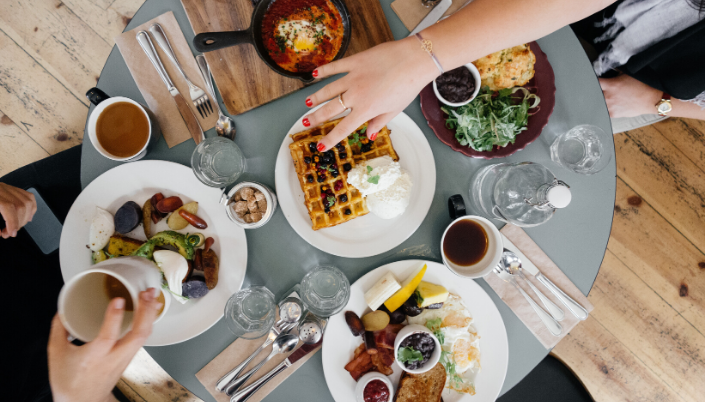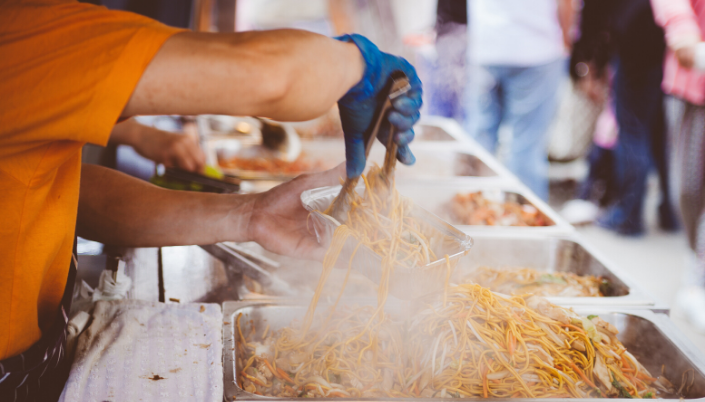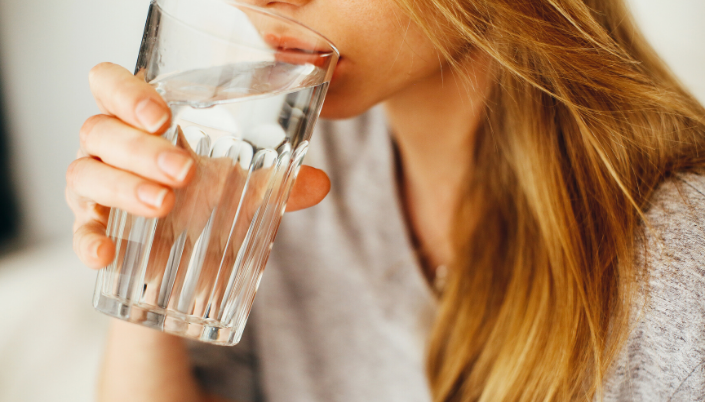
.png)
What to Do If You Get Food Poisoning on Holiday?
09 Mar 2020 by Olga Brighton
Does travel insurance cover food poisoning?
Appreciating that all eyes are on the coronavirus right now, but did you know that getting food poisoning on holiday is one of the most common medical incidents that people experience while travelling. We rightly get enthusiastic about eating out while away and trying new foods, drinks and dining experiences, but unfortunately with statistics like ‘23 million people experiencing food poisoning every year’, the importance of being aware of food safety and having medical cover shouldn’t be overlooked.

It's pretty common for most travel insurance policies to cover you in the event you suffer food poisoning and need medical attention while abroad. Depending on the severity of your condition and your policy cover, this can range from emergency medical expenses, to daily hospital benefit and perhaps pre-booked excursion cancellation should you become too ill to continue your pre-planned excursions. It’s important to note, that all travel insurance policies will differ with their offering of what they will or won’t cover, so it’s important to check through the finer details. Before you purchase travel insurance, check:
- The capped limit for medical expenses (you want to cover over £1,000,000).
- Any other benefits if you are hospitalised – such as daily benefits while you’re an in-patient.
- Is there a 24 hr Assistance Service to help while you're abroad?
- Will they guarantee your medical bills directly with medical providers?
Read also: 9 Most Dangerous Foods in the World
How to avoid food poisoning on holiday and while travelling?
In many places such as parts of Asia, Africa and India (renowned for ‘Delhi Belly’) it’s important to remember that particular locations in these areas might have poorer food hygiene than you are used to and in some circumstances, contaminated food or water. It is not uncommon for travellers to experience food poisoning in less developed countries because of the difference in diet, food hygiene and the sourcing and/or storage of food or drink. That being said, you can still get food poisoning from anywhere in the world and some of the worst cases for food poisoning occur far and wide including locations such as Spain and Mexico.

To avoid any potential risks of getting food poisoning there are many precautions you can take, here are some of the key ones that we recommend:
Tips to avoid food poisoning
- Plan ahead! Eating plenty of fruit and vegetables and being well rested in the days and weeks leading up to your trip will help boost the immune system.
- If in any doubt over the safety of local tap water, opt for bottled or canned water. Check the lid is still sealed on any purchases. Find out which countries have unsafe water in this guide.
- Beware of swimming in natural water sources such as rivers, open pools or lakes.
- Eat freshly and thoroughly cooked food that is still piping hot from cooking.
- Avoid food that has been kept warm / out for a long period of time. Hot weather and a lack of preservation can cause the perfect conditions for bacteria to grow on food causing contamination.
- Avoid salads that may have been washed in tap water.
- Avoid uncooked food/fruit, unless you can peel or shell it yourself.
- Ice cream is a wonderful treat on holiday but be cautious buying from mobile/portable sellers as they may have inadequate refrigeration and goods may have melted and been refrozen several times.
- Be particularly careful with fish and shellfish as uncooked fish is particularly hazardous and food poisoning from fish can be very nasty.
- Check food hygiene ratings for your choice of restaurant and see other people’s experiences on trusted forum and reviews sites such as TripAdvisor.
- Even though some street food is amazing, you may be safer to avoid it. If you do take the risk, choose a busy stall selling food you can see being freshly cooked. If you’re in any doubt of the reputation of the food provider, then avoid it!
Read also: What Are Prices for Brits' Treatment Abroad?
What should I do if I get food poisoning?
The impact of food poisoning can vary from short-term stomach pains or sickness to being hospitalized. If you do suffer bad symptoms from food poisoning, seek medical assistance as soon as you can and speak to someone who can help. If you have a decent travel insurance policy, you should be covered and have the peace of mind that any necessary costs will be paid and support provided. When seeing a doctor or medical staff, make sure you document everything and keep all receipts/paperwork, so you have proof to show your insurance for your claim. Before you do commit to any potentially expensive treatment options, check with your 24 Hour Medical Assistance Service attached to your insurance. They can usually guarantee in-patient treatments costs directly with the medical provider and will ensure that you avoid unnecessary treatment. Don’t leave this as an afterthought as you may end up out of pocket and miss out on invaluable help.

Other advice that is always recommended is to stay hydrated, use rehydration salts, eat plain and safe food such as toast/boiled vegetables/potatoes or rice, maintain personal hygiene by washing your hands regularly.
There are some great resources to find out more about advice on reducing food poisoning while travelling, including the NHS. The World Health Organisation’s International Travel & Health website also provides travellers with general information regarding travel health, vaccinations, risks and precautions. And finally, wherever you travel always check FCO’s travel advice to help you stay safe and travel aware.
If you’re looking for a reliable travel insurance policy that will cover you for food poisoning or any other medical emergencies while you are abroad, then take a look at our highly rated policy options.
We accept

